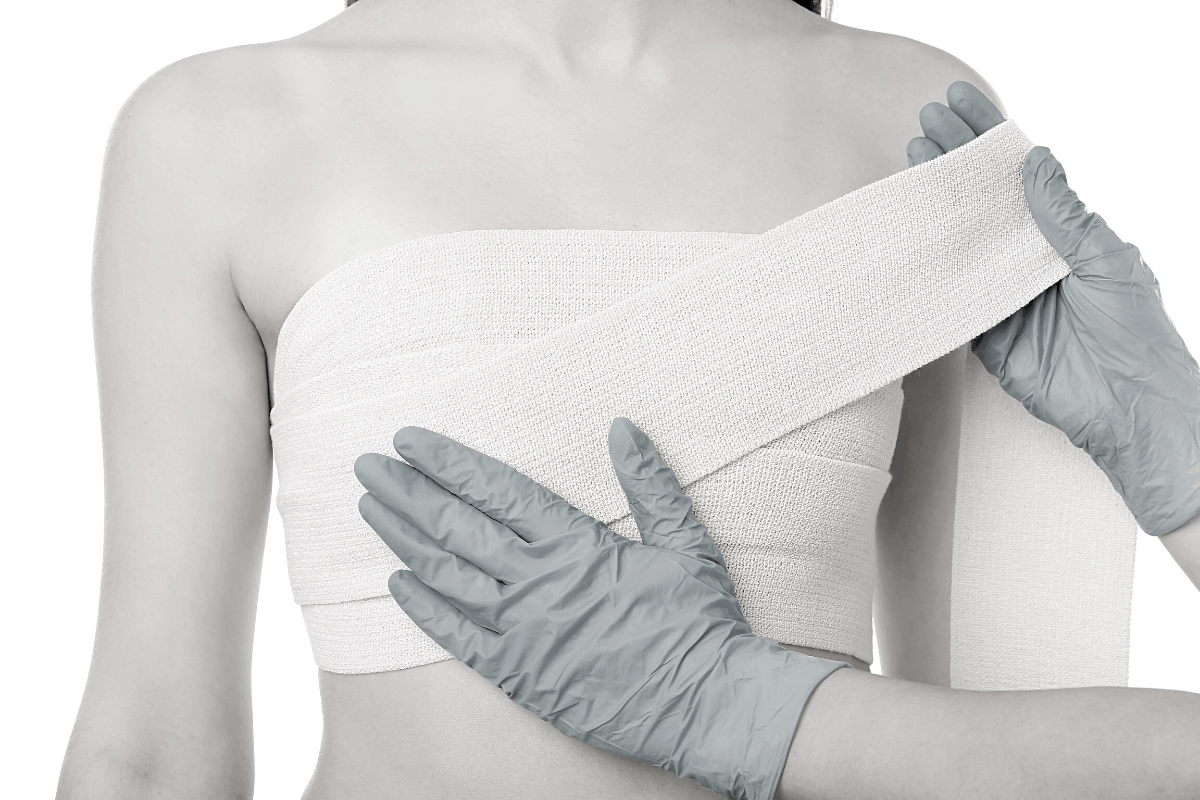February 4th, 2025
Dr. Mulholland, Md
While breast implants have been designed to provide comfort, support, and a beautiful figure, they do need to be replaced – find out why and when with Toronto Plastic Surgeons.
Why Should You Get Your Breast Implants Replaced?
Many women opt to replace their breast implants even when they aren’t worn out, just to be safe and take preventative measures. You should get your breast implants replaced if:
- You are unhappy with the results. You may have been happy with your results at first, but over time you may want differently sized breasts than you originally opted for. Revision surgery happens often, and changing your implants to a smaller or larger option is not an issue.
- You are seeing drooping. Breasts naturally sag with age even if you have implants, but the job of implants is to keep your breasts looking perky. As soon as gravity does its thing, you may want to change out your implants to refresh your bust’s appearance. Rapid weight loss, gain, and pregnancy can also cause drooping.
- You’re experiencing complications. One of the complications that can occur in women with breast implants is capsular contracture, which means the membrane formed around the breast implants resulting in a hardening of the breast itself as the implant is constricted by compression. This is an uncommon occurrence, but if you feel hardness in your breasts, a tight chest, or uneven breasts, discuss these complications with your surgeon.
- Your implants have ruptured. When saline implants deflate, you will notice an obvious difference in your breast shape and size. Deflation can happen quickly or over a certain amount of time, but it is best for your internal health and aesthetic goals to get the implant replaced as soon as there are any signs of deflation. Silicone implants rupturing is much more difficult to notice, so you should get your implants checked annually by your doctor via an MRI.
- You’ve noticed rippling. Saline implants that are overfilled can visibly ripple on the edge and be noticeable. Replace implants, especially if you have thin tissue, when advised by your surgeon to prevent rippling or uneven breasts.
How Long Do Breast Implants Last?
Breast implants do not last a lifetime – contrary to popular belief. Implants may have to be replaced due to complications, the desire to increase or decrease their size, or sagging and rippling. If you have silicone implants, you should get yearly mammograms and MRI scans every five years to check for ruptures. As a general rule of thumb, you should attend yearly checkouts and replace implants after 10-15 years, unless there are no concerns.
What to Expect with Implant Removal
When you and your doctor decide that it’s time for surgery, you will receive an IV to sedate you or general anesthesia so you don’t feel any pain. During the operation, an incision will be made around the areola and under the lower fold of your breasts. The implants and scar tissue will be removed and replaced with new implants (if you are getting an implant replacement). Stitches, tape, and adhesives will help close the incisions and begin the healing process.
How to Make Sure Your Implants Last Longer
If you’re replacing your implants for aesthetic reasons, it is best to consult with your surgeon and ask as many questions as possible to make sure that this size will provide you with long-term satisfaction. Pick a shape and size of implant that you know you can look good with but also live with for the next 10-20 years. Take into consideration your lifestyle, comfortable exercise, bra shopping, and the figure you’d like to achieve.
To avoid implant complications that are out of your control, be sure to choose a board-certified, experienced surgeon like Toronto Plastic Surgeons, follow all aftercare instructions, and get regular MRIs or mammograms to check for silicone ruptures or saline deflation.
Before, During, and After Implant Removal
Before
To prepare for your breast implant removal, you may need to:
- Get a medical evaluation.
- Adjust your current medications.
- Stop smoking
- Avoid taking over-the-counter or anti-inflammatory drugs that can thin the blood.
Be sure to have someone to drive you home following your surgery, as you will be put under general anesthetic. You should also have someone stay with you for the first night following your procedure to make sure you are keeping your head elevated, hydrating, and have everything you need to heal.
During
During your consultation, you will be advised by your surgeon which implants are best for your goals, desires, and medical history, and your surgical options will be discussed. You can go ahead with implant removal, implant removal with a breast lift, removal of tissue, or implant replacement.
If you are looking to remove implants and get them replaced, Toronto Plastic Surgeons will recommend implants of a size and shape that suit your body and goals. You may be able to return home the day of your surgery, but recovery time differs for everyone. You can resume working in five days, but stay away from strenuous activities for six weeks.
After
Your breasts will be covered in gauze following your implant removal or replacement. You may have drainage tubes, which will be removed in a few days, and you may need to wear a surgical bra. Your doctor can prescribe pain medication for you or give you the go-ahead to use over-the-counter pain medication. You may have some swelling and scars, but these will fade over time. Carefully follow all aftercare instructions and you will heal quickly and beautifully.
Saline vs. Silicone
One of the choices you have to make when pursuing an implant replacement or your first breast implant procedure is whether you want saline or silicone implants. Both have an outer silicone shell, but the implants feel different and are filled with different substances.
Saline breast implants are filled with sterile salt water, but are put into the chest area empty and filled once they’re in the correct position. You must be 18 or older to receive saline breast implants, and you will know if they need to be replaced when they begin to look uneven, deflate, or ripple around the edges.
Silicone breast implants are made with a gel filling, and many patients report that they look and feel like natural breasts. These implants are only available to people 22 and older, but are available at any age for breast reconstruction surgery. You will know if they need to be replaced when they begin to harden, look uneven, or sag. MRIs and mammograms every 5 years, along with yearly doctor’s visits, can help you avoid any complications.
What You Should Consider Before Getting Breast Implants (Again)
Before getting breast implants, consider your desired placement, type, size, and shape – all of which you can discuss during your consultation with Toronto Plastic Surgeons. Your procedure can also be combined with a breast lift or scar tissue removal, depending on your goals, past health concerns, and lifestyle.
All implant procedures come with risks, such as breast pain, changes in nipple sensation, hardened scar tissue around the implant, scarring, bleeding, infection, dissatisfaction with the implants, ruptures, or leaks. When a saline implant ruptures, also referred to as a silent rupture, the body can safely absorb it. When a silicone implant leaks, the leak will either stay inside the implant shell or leak outside and deflate the implant.
Follow all aftercare instructions, attend regular doctor appointments, and check in with your surgeons to maintain your rejuvenated dream figure!



